How to use WhatsApp for business: 12 strategies for success
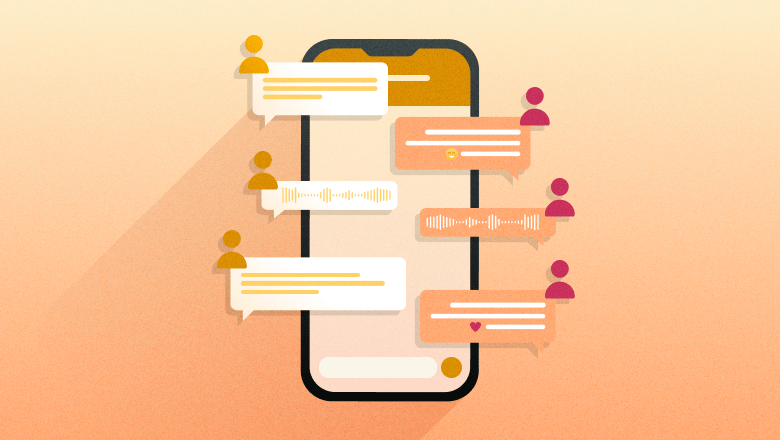
Table of Contents
The way we use social media is changing. Conversational marketing is on the rise, driven largely by consumers’ increasing expectations for convenience and tailored digital experiences.
Customers expect far more direct experiences from the brands they’re buying from; according to The 2025 Sprout Social Index™, consumers believe companies should make personalized experiences their highest priority this year.
Achieving personalized experiences across social media can be a challenge, but WhatsApp is the perfect platform for the job. WhatsApp’s popularity has exploded—it’s now in the top four most used social media apps worldwide by number of monthly active users. Below, we’ve explained how to use WhatsApp for business, including how to offer direct communication to your customers. We’ve also listed several examples of global businesses already using WhatsApp effectively.
Why use WhatsApp for business?
For brands that use WhatsApp to engage with customers, there are a number of clear benefits.
- Expand your global reach. WhatsApp is the most popular messaging app worldwide by a considerable margin. With a potential audience that large, it’s easy to engage with new prospects that may not yet be aware of all your business has to offer.
- Improve the customer experience. WhatsApp offers your business a direct one-to-one communication channel with customers. You can use your account to offer personalized support and messages that further your relationship with individual members of your audience.
- Enhance employee satisfaction. Using WhatsApp makes it easier for your customer service and social teams to juggle messages from different people. When combined with an effective social marketing tool, switching to WhatsApp can make your employees’ jobs easier, freeing up time for them to focus on other tasks.
- Boost customer retention over time. Reaching customers where they already are makes it easier for them to interact with you. This ease can improve their overall experience, which makes them more likely to continue to purchase and engage with you in the future.
- Combine conversational marketing with social management. With WhatsApp marketing software, you can connect your WhatsApp efforts to your broader social media strategy. This combined approach allows you to manage all your social channels from one centralized location, boosting the effectiveness of each of your accounts.
7 WhatsApp Business account features to use
Once you create your WhatsApp Business profile, you’ll find a suite of tools you can use to scale your 1:1 messaging strategy on the platform. Here are eight that can help you make the most out of your presence on WhatsApp:
1. Quick replies
Quick replies are a great way to take some of the work out of addressing those frequently asked questions, like “when are you open?” or “is this in stock?”.
To set one up, all you have to do is click Quick Replies under the Tools tab of WhatsApp. From there, you can create up to 50 unique replies that you can access via keyboard shortcuts.
A word to the wise: Start with 5-10 Quick Replies and add more as needed. That will make your new shortcuts easier to remember and use when talking to customers.
2. Automatic away messages
Adding 1:1 messaging to your strategy doesn’t mean you need to be available 24/7. You can use WhatsApp away messages to set appropriate expectations with your customers and to give yourself a break as needed.
Away messages can be triggered by a few different scenarios, including:
- When a customer messages you outside of business hours
- During specific periods, like holidays or extended closures
- When receiving high volumes of inbound messages
When you set up an away message, be sure to clearly state when a customer can expect to hear back from you. Remove as much ambiguity from the situation as possible for an improved customer experience.
3. Contact and message labels
You can use labels to organize inbound messages and contacts on WhatsApp, similar to how you might use labels to organize your email inbox.
When it comes to creating a label strategy, it’s a choose-your-own-adventure game. However, if you want to keep your social media response times low, we recommend that you create a label specifically for unresolved issues. This will help keep them top of mind as you work to find the answer to a customer’s question.
4. Catalogs and collections
Use your WhatsApp Business account to drive social commerce sales by creating an inventory catalog within the app. All listings need a unique title, at least one image and their country of origin. All additional fields—price, description, website link, product code—are optional, so you can make your listing unique to your sales process.
You can also use collections to sort your catalog for easier browsing. For example, you can create a holiday-specific collection or one that features products currently on sale.
5. Catalog links
Once you create a catalog, you can share items in your catalog in conversations with customers. All you have to do is find the item you’d like to share and click Send link via WhatsApp Business.
Use this tool if a customer is asking about a specific item or to provide alternatives for items that have sold out. You can also use it to send loyal customers updates on items that have gone on sale.
6. Cart
While you can drive customers directly to your site using WhatsApp Business’s catalog feature, you can also create a more seamless checkout experience by encouraging them to complete their purchase in-app using the cart tool.
All you have to do is enable the Add to Cart feature within your catalog and your customers can handle the rest from there.
7. Broadcast lists
If a customer adds your business to their address book on WhatsApp, you can add them to a broadcast list. These lists help you send the same message to multiple customers at once, saving you a lot of time and effort.
Use this tool sparingly and with SMS marketing best practices in mind. If you use it too often, you risk alienating customers who appreciate your business enough to consider it a personal contact. Remember, you’re also limited to 256 contacts per broadcast list.
8. WhatsApp ads
WhatsApp has recently announced adverts are coming to the platform. The messaging app is currently going through a gradual rollout of its ad functionality which will continue throughout the year.
Ads appear in a distinct section of the app called Updates and are personalized for each user. As the features roll out, you’ll be able to promote your ads on the platform. Start forming a WhatsApp ads strategy now so you can take advantage of this feature as soon as it’s available in your market. WhatsApp ads have the potential to get your brand in front of interested users, attracting new customers whilst building your relationship with existing buyers.
12 examples of how to use WhatsApp for business across your organization
Brands are using WhatsApp in a variety of ways that expand their customer-facing and internal capabilities. The following examples highlight use cases in business promotion, customer service and pipeline growth.
How to use WhatsApp for business promotion
WhatsApp can be a useful tool to promote your business and increase your brand’s reach. You can use the platform for unique awareness campaigns, or develop distinct communication channels through the app that cater to your audience. Here are several examples of brands doing just that.
Carrefour creates WhatsApp catalogs
International hypermarket Carrefour uses WhatsApp to offer personalized catalogs and coupons to its customers. Before they started using WhatsApp, they were relying on physical, printed catalogs which were both expensive to make and often hard to align with time-sensitive discounts.
After switching their catalogs to WhatsApp, they found 45% of recipients engaged with them for at least 3 minutes, compared to 10% who did so through email. They could also target users based on their location to deliver specific promotions and deals for relevant store locations. Alongside being a more cost-effective solution, Carrefour’s use of WhatsApp makes it easier for their customers to access product catalogs and deals through an app they’re already using regularly.
Maggi builds a WhatsApp chatbot
In Germany, Maggi built a WhatsApp-only chatbot designed to give users recipe recommendations. The chatbot, KiM, is accessible through a unique WhatsApp number and is able to send short cooking hack videos, recipe advice, quizzes and even module-based cooking lessons.
As a free tool, KiM allows people from Germany to easily access cooking tips that can help them eat healthily and cook fresh meals. But it also furthers Maggi’s own identity, promoting their brand while increasing awareness of their products and how they can be used in recipes at home.
Universal Pictures advertises using interactive WhatsApp campaigns
One of the world’s biggest movie production companies, Universal Pictures, has started relying on WhatsApp as a core channel in its advertising campaigns. They started experimenting with these campaigns to support the release of M3GAN, a horror film featuring an AI doll.
Universal wrote in-character messages from the perspective of M3GAN and sent them to users, asking if they wanted to receive promotional material about the film. This was a smart way of getting consent from users in a way that didn’t sacrifice the theming of the overall campaign. Once they’d opted in, WhatsApp users could have interactive conversations with the character, whilst also receiving new trailers and film information.
The campaign was a big success, achieving 92% read rates and 59% engagement rates. It also contributed towards a 2x higher interest rate in the film when compared with the industry average.
The World Wildlife Foundation builds a unique WhatsApp game
To promote their charity’s brand and raise awareness about nature reserves, the World Wildlife Foundation (WWF) took a unique approach by building a WhatsApp video game. “The Tree of Hope” was designed as a WhatsApp adventure game that relied on automated responses based on users’ messages and inputs.
The game proved popular with users, as the WWF achieved 30% completion rates from everyone who tried playing. Their success shows that WhatsApp can be fertile ground for creative approaches to marketing, and experiences that can make it easier for organizations to reach millions of people.
Takeaway for your brand
These campaigns all show WhatsApp’s potential as a business promotion tool and as a host for creativity. All of the above brands have been able to create unique experiences based on WhatsApp’s messaging features, and deliver them at scale thanks to the vast number of people already using the platform. Many of them have also relied on the automation potential of WhatsApp, and new technologies like large language models, to provide personalised experiences in a more streamlined way.
You can pave your own way towards similar outcomes by using Sprout’s WhatsApp integrations. Use Sprout to schedule your first WhatsApp messages to speed up and scale your response times. Effective use of a tool like Sprout can support building creative messaging channels like Universal Pictures and WWF, where you can promote your business at scale over WhatsApp without getting overwhelmed.
How to use WhatsApp for customer service
WhatsApp can be an excellent customer service tool as it allows you to manage one-on-one messages with customers on their preferred platform. All of these companies are using WhatsApp to improve customer experiences.
Air France supports flyers at every stage on WhatsApp
Air France is the largest airline in the country, and they now use WhatsApp to support flyers across every stage of their journey. This includes sending travel newsletters, unique travel deals and utility messages that contain vital information like boarding passes and gate changes.
They also handle customer service messages through WhatsApp, using a chatbot that then directs questions to the right department. Some 85% of the airline’s customer care conversations now take place through WhatsApp, and they receive 4.5x higher click-through rates on newsletters compared with emails.
TUI supports travellers with a virtual WhatsApp assistant
Air France isn’t the only global travel company using WhatsApp to support travellers. TUI operates a WhatsApp virtual assistant called Louise. Louise is accessible for all TUI travellers, and offers an accessible way for travellers to ask for recommendations or ask questions about their trip.
With Louise, TUI combines a customer support tool with a feature that improves their travel products. By integrating Louise entirely with WhatsApp, they can trust that travellers will likely already have the app they need to access the service.
WhatsApp supports Lenovo’s technical services
As a major tech provider, Lenovo often has to handle thousands of different schedules for technical appointments and repairs. To streamline this process in Southeast Asia, Lenovo created a WhatsApp chatbot that took advantage of WhatsApp Flows.
When compared to their website experience, the intuitive system Lenovo built on WhatsApp achieves 8.2x higher conversion rate for appointment bookings. They also achieved a 44.5% overall customer engagement rate increase through customers interacting with them through WhatsApp.
NatWest Business manages a WhatsApp service line
As one of the UK’s biggest banks, NatWest supports millions of business accounts and customers every day. To handle all of the questions their users might have, they manage a WhatsApp number that’s accessible at any time of day.
Due to the sensitive nature of business banking, NatWest also includes a lot of safety tips for accessing their WhatsApp channel on their website page. The number allows the bank’s customer service team to answer simple questions about mobile banking, and connects more significant questions to response teams to make sure bankers are supported 24/7.
Takeaway for your brand
These brands prove how many benefits there are if your brand can switch to WhatsApp as its main communication channel. By centralising all of your direct communications (newsletters, support messages, deals etc.), your comms become easier to manage, and your customers get used to contacting you through a single, reliable platform. For customer service in particular, optimising how a customer conversation flows enables you to filter conversations and get customers to the right people faster.
Chatbots and WhatsApp automation can also be used to support your products, as well as your customer service capabilities. By automating your own repetitive WhatsApp tasks using Sprout, you can similarly prioritize specific user needs. This can help you improve customer support conversations, and offers your team more collaboration opportunities to refine customer engagement over time.
How to use WhatsApp for pipeline growth
Alongside business promotion and customer service, WhatsApp can also be an effective platform for sales and building your pipeline. These brands have all used WhatsApp to increase sales in their markets.
Hello Fresh increases orders through personalized deals
Hello Fresh is one of the biggest meal delivery services in the world, and they rely on WhatsApp to attract new orders. First, Hello Fresh encourages users to create WhatsApp conversations with them through interactions with organic deal adverts. They then send personalized deals through direct WhatsApp chats to interested customers after they’ve received information on their location and needs.
This approach has led to great success for the company, including a 32% click-through rate, and a 25% opt-in rate for follow-on promotions. Overall, this strategy achieved 155% more conversions when compared with the company’s call centres.
Domino’s Pizza boosts regional sales through WhatsApp
As a worldwide company, Domino’s Pizza often employs regional strategies to try to increase sales in certain countries. In Indonesia, they created a holistic WhatsApp marketing strategy designed to sell, retain and reward customers.
To sell, they sent daily messages to historic orderers. To retain them, they sent personalized messages encouraging future orders, including deals and promotions. To reward them, they designed a loyalty program that they delivered entirely through WhatsApp.
This campaign led to a 72% increase in sales across Indonesia when compared with Domino’s results in the previous year. It was a hugely profitable campaign, with the company achieving a 6.3x return on investment (ROI) from WhatsApp messages that year.
Movistar improves sales across multiple countries
Movistar is one of the largest telecommunication providers in Spain, and the fourth largest provider in Europe. Recently, Movistar has also substantially expanded into LATAM markets, and has used WhatsApp marketing in multiple regions to increase sales.
In Argentina, Movistar reduced their customer acquisition costs by 70% by sending customized messages and offers through WhatsApp. They achieved similar successes in Colombia, where their automated WhatsApp messaging journeys were used to boost mobile upgrades. These journeys helped Movistar achieve both a 16-point increase in digital sales conversions to paid plans, as well as a 25-point increase in customer loyalty scores.
WhatsApp personalization helps build Jack Wolfskin’s pipeline
To increase sales of their outdoor clothing, leading brand Jack Wolfskin implemented WhatsApp opt-in flows to support their Black Friday campaigns. They attracted users through a free newsletter, which offered a €10 discount to any new subscribers. Clicks led users to a WhatsApp conversation, with an automated set of messages and options that helped Jack Wolfskin learn about user preferences.
This helped them filter users based on the type of clothes they were interested in, and their favourite activities. Some 90% of people completed this opt-in flow, allowing Jack Wolfskin to add thousands of new users to the consideration stage of their sales pipeline. This campaign was rolled out across Germany, though the company has plans to increase 1:1 WhatsApp sales and similar opt-in data collection strategies in other countries.
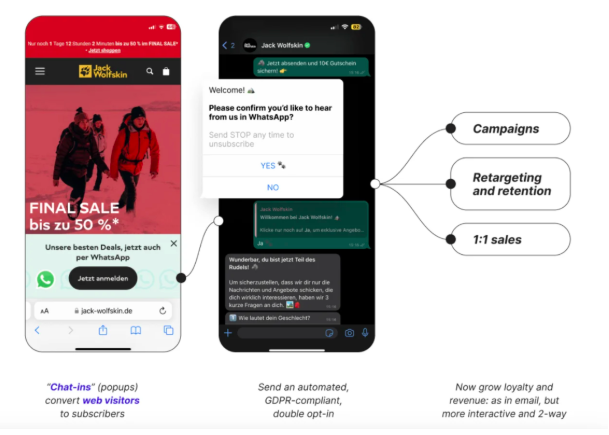
Takeaway for your brand
These brands all show how WhatsApp can be an effective global marketing channel and a vehicle for direct sales. When managing these direct WhatsApp campaigns, focus on targeting to make sure you’re communicating with the right customers, and use these opportunities to collect more insights and data. When using WhatsApp to target specific regions, review usage rates in your country of choice first. Also, make sure to follow all local regulations for advertising and marketing.
By creating automated chats, you can filter your audience, and then label them using WhatsApp Business features. Using Sprout you can also connect these individual conversations to other helpful contextual updates, across socials, CRM and other helpdesk tools. This helps you gather more actionable data on user conversations which can be used to inform new WhatsApp sales strategies.
How can you use WhatsApp for business?
Conversational marketing is here to stay. The majority of customers expect it, and companies that strategically engage their audiences via channels like WhatsApp are better positioned to take advantage of the growth it makes possible.
If you’re relying on WhatsApp to boost sales, promote your business or improve your customer service, all these use cases can be streamlined with the right tools. Check out this recent Insights article to learn how you can use WhatsApp marketing software to connect with your audience while driving conversions.

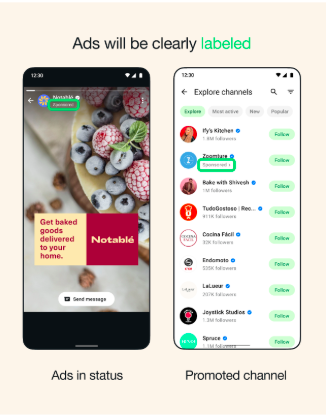
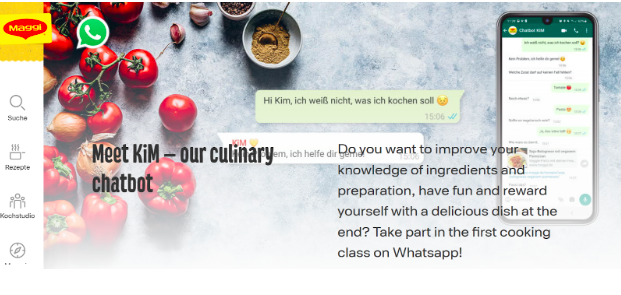
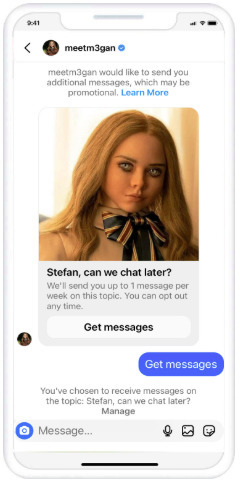
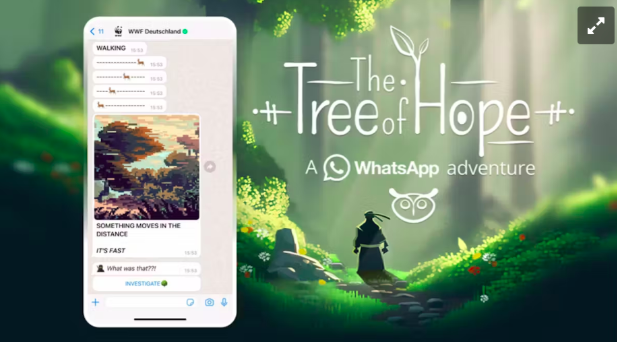
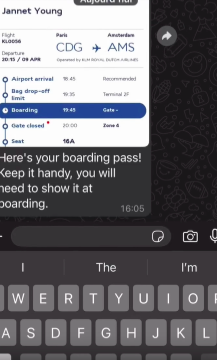
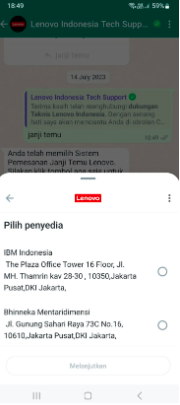
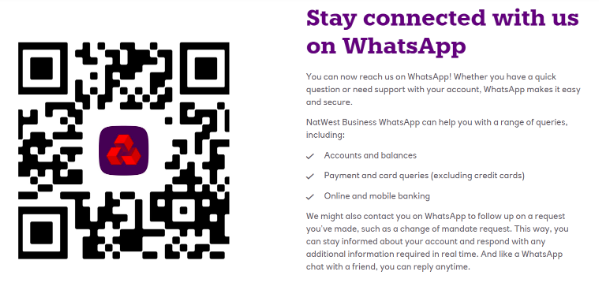
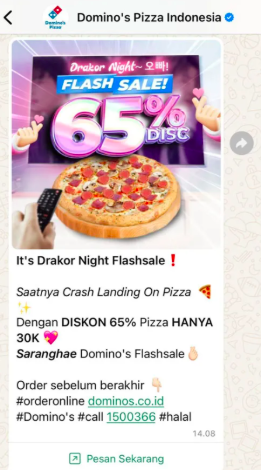


Share